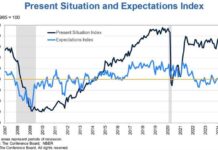The Rise of Germany’s AfD Far-Right Party in State Elections
Germany’s far-right Alternative for Germany (AfD) party has made significant strides in recent regional elections, with the party poised to secure a significant portion of the vote in Thuringia and Saxony. The AfD’s rise in popularity has raised concerns among many Germans and international observers, as the party’s nationalist and anti-immigrant stance has sparked controversy and debate.
The latest exit polls suggest that the AfD is on track to win 33.5% of the vote in Thuringia, placing them ahead of the conservative Christian Democrats (CDU) who are projected to receive 24.5%. In Saxony, the race between the AfD and CDU is too close to call, indicating a strong showing for the far-right party in both regions. This surge in support for the AfD reflects a growing trend of right-wing nationalism in Germany and across Europe.
Implications of AfD’s Electoral Success
The AfD’s success in the regional elections has significant implications for Germany’s political landscape and the broader European Union. The rise of far-right parties like the AfD challenges the traditional dominance of mainstream political parties and raises questions about the future direction of German politics. The party’s anti-immigrant rhetoric and populist agenda have resonated with a segment of the German population disillusioned with the status quo.
The AfD’s electoral success also reflects broader trends in Europe, where far-right parties have gained traction in recent years. The rise of nationalist movements across the continent has fueled concerns about the erosion of democratic values and the potential for increased polarization within European societies. The AfD’s performance in the regional elections underscores the need for mainstream political parties to address the underlying grievances that have fueled the rise of populist movements.
Challenges Facing Germany’s Political Establishment
The AfD’s electoral success presents a significant challenge to Germany’s political establishment, which has long been dominated by mainstream parties like the CDU and the Social Democrats (SPD). The rise of the far-right party has forced traditional parties to confront issues such as immigration, nationalism, and identity politics that were previously considered fringe concerns.
The mainstream parties’ struggle to address these issues effectively has created an opening for the AfD to capitalize on public discontent and present itself as a viable alternative to the status quo. The party’s anti-establishment rhetoric and populist messaging have resonated with voters who feel marginalized or overlooked by traditional political elites.
Impact on European Politics
The AfD’s electoral success in Germany has broader implications for European politics, as the rise of far-right parties in one country can have ripple effects across the continent. The party’s anti-EU stance and nationalist agenda have raised concerns about the future of European integration and cooperation.
The AfD’s performance in the regional elections comes at a time when populist movements are gaining momentum in countries like Italy, Hungary, and Poland, challenging the liberal democratic values that have underpinned the European project for decades. The party’s success underscores the need for European leaders to address the root causes of populist discontent and work towards a more inclusive and cohesive vision for the future of the EU.
In conclusion, the rise of the AfD in Germany’s regional elections highlights the growing influence of far-right parties in European politics and the challenges they pose to the traditional political establishment. The party’s success reflects broader trends of nationalist and populist movements across the continent, underscoring the need for mainstream parties to address the underlying grievances that have fueled the rise of right-wing extremism. As Germany and Europe grapple with the implications of the AfD’s electoral success, it is clear that the political landscape is undergoing a significant transformation that will shape the future of the continent for years to come.

















